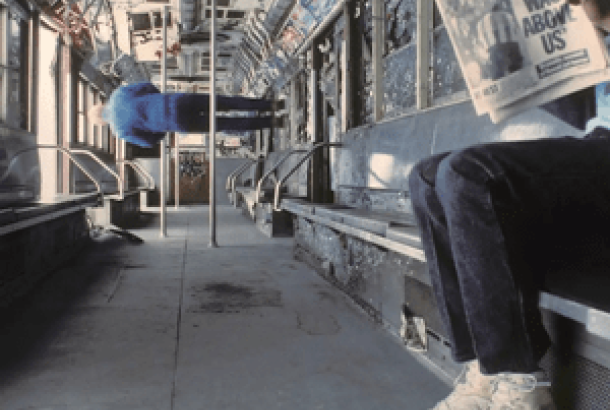Top 5: Album closers
By Joe Casson
5) ‘This Must Be The Place’ by Talking Heads
Placed at the end of 1983’s invariably funky and agitated Speaking in Tongues, ‘This Must Be The Place’ is a warm embrace that sees David Byrne, usually the uncomfortable skeptic, finally write a straightforward love song. Talking Heads didn’t totally abandon the weirdness though — they all swapped instruments to record this song, and when performed live Byrne sings it to a lamp.
4) ‘Impossible Soul’ by Sufjan Stevens
“Don’t be distracted”, sings Sufjan, six minutes into this gargantuan closer to his 2010 electro-orchestral nervous breakdown The Age of Adz. Skipping from autotuned soul to marching music to the tender singer-songwriter style Sufjan is more known for (accompanied by everpresent sputtering electronics and sweeping brass), this track demands your closest attention. It’s a wildly ambitious end to a wildly ambitious album, and Sufjan pulls it off commendably.
3) ‘I Can’t Give Everything Away’ by David Bowie
With typically cryptic (and, in the context of his death, rather tragic) style, Bowie closed last year’s Blackstar with this deeply satisfying cut. Looking back to the 1970s with streaks of harmonica (referencing ‘A New Career in a New Town’ from Low) and a Young Americans-style saxophone solo, Bowie cruised into the sunset with a knowing wink.
2) ‘Two-Headed Boy Pt. 2’ by Neutral Milk Hotel
Every track on Neutral Milk Hotel’s 1998 masterpiece In The Aeroplane Over The Sea is superb, but the closing track does the most to tie together this simultaneously enchanting and deranged work of magical realism. After singing the final line “don’t hate her when she gets up to leave”, Jeff Mangum did exactly that: you can hear him as he puts down his guitar and leaves the room. He didn’t return to public life for nearly a decade.
1) ‘New York, I Love You But You’re Bringing Me Down’ by LCD Soundsystem
With its New Wave influences, Talking Heads-fawning and persistent disco grooves, 2007’s Sound of Silver is a tribute to New York City in many symbolic ways. It’s only on the weary final track that LCD Soundsystem make this explicit, though, as the band turn their tribute towards Lou Reed’s retro ballads. Before the track’s cathartic blow-out of an ending, the subdued instrumentation allows James Murphy’s witty songwriting to shine, as he pens an open letter about his complicated relationship with the city that made LCD Soundsystem great.







